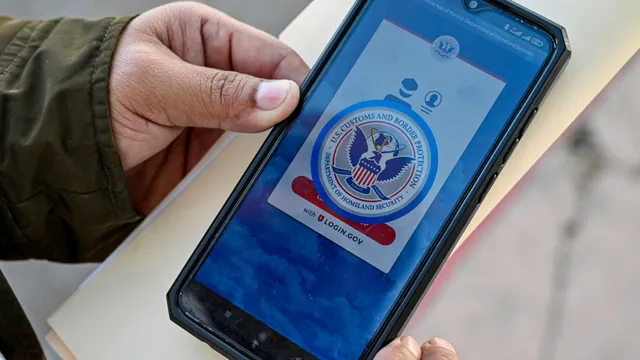
DHS threatens immediate deportation for migrants who used CBP One app
2025-04-09 15:53- The Department of Homeland Security issued notices to migrants who entered the U.S. through the CBP One app, instructing them to leave immediately.
- These migrants were originally granted parole under the Biden administration, allowing them legal status for a two-year period.
- The order reflects a promise to enhance border security and signifies a drastic shift in immigration policy under the current administration.
Express your sentiment!
Insights
In the United States, the Department of Homeland Security (DHS) recently issued an order requiring certain migrants to vacate the country immediately. These migrants had previously entered the U.S. via a Biden-era online appointment app called CBP One, which was designed to facilitate legal pathways for entry. Since the app's introduction in January 2023, over 936,000 individuals had received immigration parole, allowing them to reside and work in the U.S. for two years. This new directive comes as part of the Trump administration's broader policy shift aiming to tighten immigration laws and secure national borders. The DHS's recent decision to revoke the legal status of these migrants signifies a notable change from the policies of the previous administration under President Biden, who sought to provide opportunities for legal entry to deter illegal crossings. The DHS clarified that this action is intended to uphold promises made to the American populace about protecting national security and enforcing immigration laws. Beneficiaries of the CBP One app have been urged to voluntarily self-deport using the relaunched version of the app, now called CBP Home, which was initially designed to streamline the entry process. Affected migrants, most of whom hail from countries such as Honduras, El Salvador, and Mexico, received notifications indicating the cancellation of their parole status and instructions to depart the U.S. Prompting the decision, officials from the DHS highlighted that the use of parole authority under the Biden administration was unprecedented, further exacerbating the border crisis. Revocation communications were reportedly sent out without disclosing the total number of impacted individuals, and there remains uncertainty regarding the future of those with pending asylum cases in U.S. immigration courts. Alongside this development, the Trump administration has been actively dismantling various aspects of the Biden-era immigration framework. This approach includes the termination of other forms of temporary status for large groups of migrants, particularly from Cuba, Haiti, Nicaragua, and Venezuela, with a deadline set for April 24 for affected individuals to leave or face deportation. This ongoing shift in policy marks a critical moment in the evolving landscape of U.S. immigration, emphasizing a more stringent enforcement mechanism under the current administration.
Contexts
The changes in U.S. immigration policy under the Trump administration marked a significant shift in the country's approach to immigration. The administration's focus was primarily on stricter enforcement, reduction of legal immigration, and prioritization of national security concerns. One of the most notable measures was the implementation of the "zero tolerance" policy, which led to the separation of families at the U.S.-Mexico border. This policy not only created a humanitarian crisis but also ignited widespread public outrage and legal challenges, leading to a national conversation about the rights of migrants and the treatment of asylum seekers. Another major aspect of the Trump administration's immigration policy was the attempt to end the Deferred Action for Childhood Arrivals (DACA) program. Established under the Obama administration, DACA protected young immigrants, often referred to as "Dreamers," from deportation. The Trump administration's efforts to rescind DACA faced multiple legal hurdles, resulting in a prolonged debate on the future of these individuals who arrived in the U.S. as children. This issue reflected broader themes in immigration policy discussions, including the complexities of legal versus illegal immigration and the role of federal versus state powers in immigration enforcement. The administration also sought to reduce the number of refugees admitted to the United States, setting historically low caps on refugee admissions. This had profound implications for global humanitarian efforts, as the U.S. had traditionally been a leader in refugee resettlement. Policies such as the "Muslim Ban," which restricted travel from several predominantly Muslim countries, further contributed to a perception of the U.S. as increasingly isolating and unfriendly to immigrants. The enforcement of stricter vetting processes for visa applicants and an overhaul of the public charge rule, which made it more difficult for immigrants receiving public benefits to obtain green cards, further underscored the administration's commitment to a more stringent immigration framework. Overall, the Trump administration's immigration policies have had lasting impacts that continue to shape the discourse around immigration today. The combination of enforcement-heavy strategies, reductions in legal pathways for immigration, and controversial executive actions generated significant legal battles and public dissent. As the U.S. continues to grapple with these implications, the legacy of Trump's immigration policies has fueled ongoing debates about human rights, economic factors, and the moral responsibilities of the nation towards immigrants seeking refuge or opportunity.